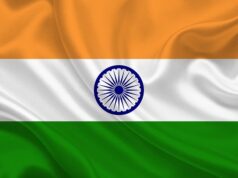Germany only had it once. In 2015, the public broadcasters had to reduce the broadcasting contribution to the pressure of politics, from 17.89 to 17.50 euros per month or by 2.2 percent. To the delight of the Japanese citizens, Japan is ahead of the Germans. For the second time in a few years, the public broadcaster of Japan, NHK, lowers its fees. In two steps, until October 2020, fees will be reduced by approximately 4.6 percent. Last NHK lowered the fees in 2012 by an average of 7 percent.
With the new reduction, Japan is expanding its price gap from the German broadcasting fee of 17.50 euros per month. The NHK reception via terrestrial channels will in future only cost 1201 yen per month or 9.30 euros. For satellite reception, 2128 yen will be due in future or 16.40 euros. Unlike in Germany, where the fee is fixed, Japanese households can still choose whether to dispense with the satellite and thus pay less. If you do not own a TV, you do not have to pay a fee in Japan, unlike in Germany. Unlike in Germany, NHK also offers customer-friendly discounts when citizens pay by standing order or credit card or for more months in advance.
There is currently no talk of that
NHK, Nippon Hoso Kyokai, lost 32.8 billion yen in premium income from the current 706 billion yen (5.5 million euros) a year. This was not a voluntary decision, but the price of allowing NHK to participate in an Internet platform operated by private broadcasters on which broadcasts can be watched live and for a few days after being broadcast. The broadcaster wants to try to reach more and younger customers in particular. In the past year NHK had spoken of the desire for an Internet fee for owners of computers or mobile phones. There is currently no talk of that.
NHK already operates a „video-on-demand“ service, which can be used to check for missed shipments. In the future, all shipments will be visible there for a week.



